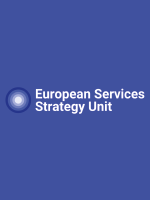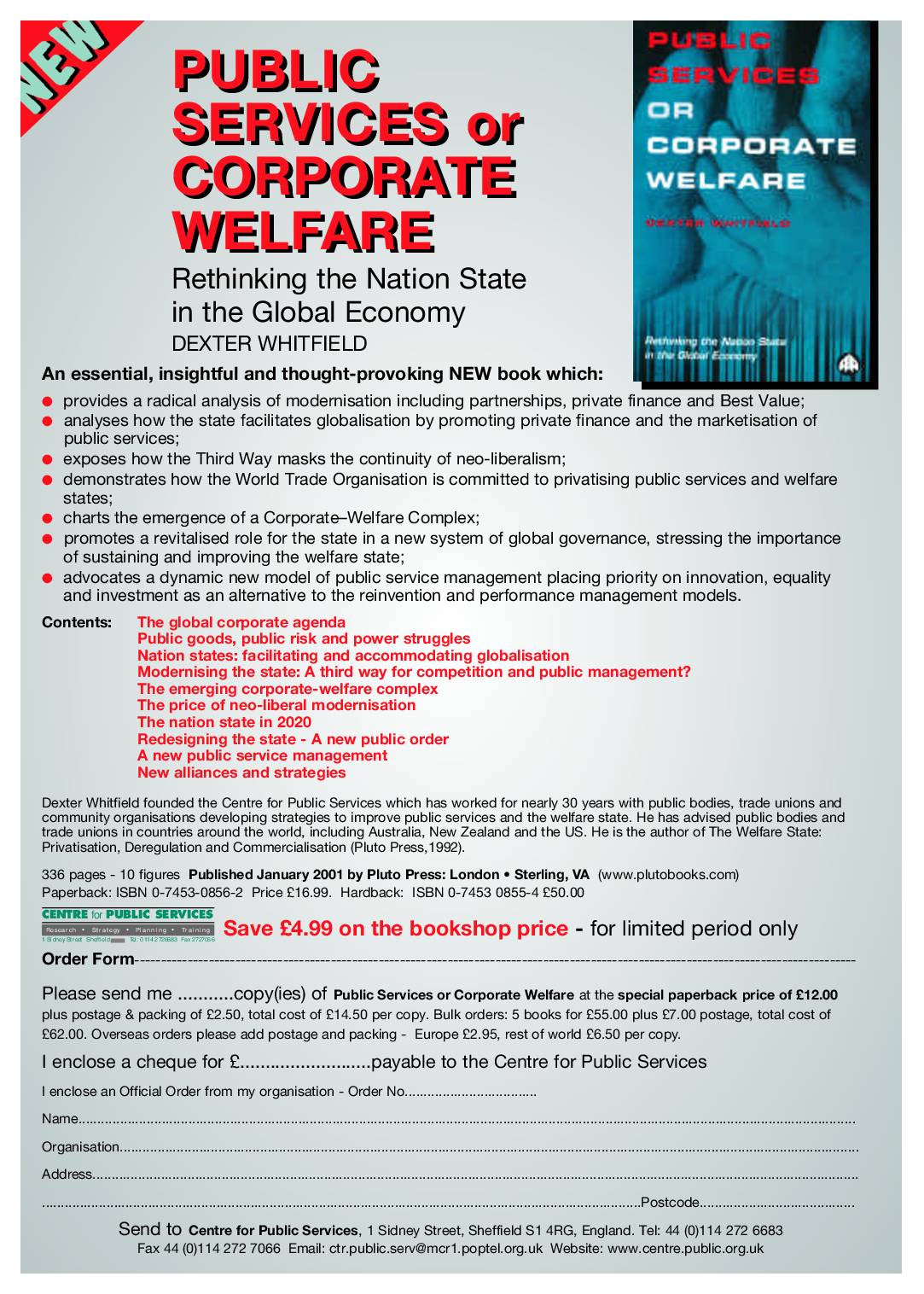Manchester City Council began a thematic review of environmental sustainability in 2000. The Centre for Public Services conducted research to support the Council’s work which was completed in November. A survey investigated the approach taken to environmental sustainability by 16 local authorities. The context for the work was provided through a national survey of 400 authorities conducted by the Improvement and Development Agency (IDeA) to assess progress on sustainability in relation to Local Agenda 21. Report was confidential.
-
Equality Audit

The Centre recently completed an equality audit for the Department of Health, Social Services & Public Safety in Northern Ireland. The report assesses the impact of the new Capitation Formula which allocates hospital, community health and personal social services revenue resources to Health and Social Services Boards in Northern Ireland.The audit assessed the implications of changes in 9 Programmes of Care for nine equality groups covering religious belief, political opinion, racial groups, age, marital status, sexual orientation, gender, disability and dependents. Report was confidential under statutory regulations.
-
Public Services or Corporate Welfare

Public Service or Corporate Welfare: Rethinking the Nation State in the Global Economy by Dexter Whitfield is an essential, insightful and though-provoking new book which provides a radical analysis of modernisation including partnerships, private finance and Best Value; analyses how the state facilitates globalisation by promoting private finance and the marketisation of public services; exposes how the Third Way masks the continuity of neoliberalism; demonstrates how the World Trade Organisation is committed to privatising public services and welfare states; charts the emergence of a Corporate-Welfare Complex; promotes a revitalised role for the state in a new system of global governance, stressing the importance of sustaining and improving the welfare state; and advocates a dynamic new model of public service management placing priority on innovation, equality and investment as an alternative to the reinvention and performance management models.
-
Outsourcing the Future

The Centre for Public Services and UNISON Newcastle have just published a new Social and Economic Audit of Privatisation Proposals in Newcastle. It assesses the impact of Newcastle City Council outsourcing and transfer proposals on the local and regional economy, identifying 435 potential job losses in the city council with 1,332 staff transferred to private contractors. The audit quantifies additional 131 job losses in the local economy. It also identifies the different social and economic impacts including the effect on regeneration, the local labour market, and community well-being. See Publications section for details of how to obtain a copy of the report.
-
Working Together for Best Value

The report was launched at a major national conference to promote the research findings and best practice. Speakers included Rt Hon Hilary Armstrong MP, Professor Michael West, Aston University, Dexter Whitfield & Karen Escott, Centre for Public Services and speakers from BT, TUC and the Audit Commission plus a panel of local authority and trade union officers.
-
Management Consultants: A Best Value Handbook

A comprehensive and practical guide for local authorities, health and public bodies, trade unions and community organisations. Includes assessing the need for consultants, trade union options and strategies, negotiating model agreements, guidance for community organisations, how to assess consultants proposals, the consultancy market and Codes of Practice.
-
Critical guide to Best Value

A new guide book which explains both the threats and opportunities of best value. The guide explains both the threats and opportunities of Best value. The threats include the pressure for competition and a new outsourcing, externalisation and privatisation agenda replacing CCT; superficial consultation paying lip service to community organisations and employees; and the threat of of an inspection, surveillance and auditing implosion diverting badly needed resources from frontline services.
The opportunities include extending genuine democratic accountability and community involvement and driving equalities, fairness, social inclusion, environmental and employment issues through the Best Value Process. The Guide sets out a new agenda to democratise Best Value with new priorities for public management. It identifies which parts of the Best Value regime should be retained, amended, abolished and what should be added and concludes with a strategic action plan. The guide was written by the Centre for Public Services and published by the Centre for Democratic Policy Making and Red Pepper Magazine.
-
Best Value Toolkit

The Centre has recently written a comprehensive Best Value Toolkit for UNISON national office. This toolkit has been distributed to all branches. The 75 page guide includes detailed guidance on the service review process, the 4Cs, continuous improvement, inspection and audit and jobs and Best value employment.
-
NHS Trust: goes for Best Value

CPS worked with the Pinderfields and Pontefract NHS Trust management and the UNISON branch to develop a new approach to non-clinical services. Following a successful public campaign to defer a decision to market test the services, the Centre drafted a paper which was agreed by the Joint Review group of managers and union representatives. It recommended adoption of Best value principles, a set of standards, joint working on reviews and a rigorous performance management framework. The Trust also agreed to return a contract with Initial to in-house provision with an a programme of service improvements across all non-clinical services.
-
Birmingham’s residential care

A new study from the Centre for Public Services. Residents Action Group for the Elderly (RAGE) and commissioned by UNISON. It reports on a major survey of users, families on staff on the options for care in the city and makes a series of recommendations. Equity implications are assessed along with the social and economic impact of transfer. User rights under Best Value and the Human Rights Act 1998 are presented in detail. (2000)

